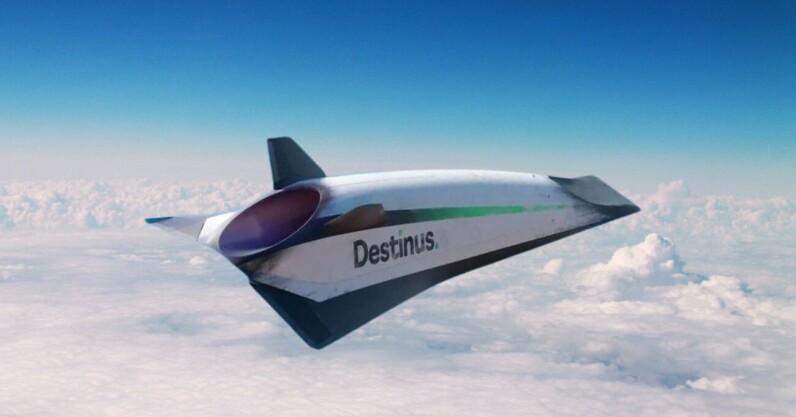$15bn merger scrapped following scrutiny from US authorities
Five9 shareholders have slammed the brakes on a proposed $15bn merger with videoconferencing giant Zoom.
The all-share transaction, mooted in July, would have seen Zoom snap up Contact-Centre-as-a-Service outfit Five9, broadening its reach beyond videoconferencing. With customers moving back to offices, a broader range of services would seem a smart move for a company whose name is to video chat what Google’s has become for web searching.
It all looked so promising. The Zoom and Five9 boards had given the hefty transaction their blessing. Only regulatory approval and a nod from Five9 shareholders were required to seal the deal for an anticipated closure in the first half of 2022.
Alas, Uncle Sam began looking a little closer at the plan and Zoom’s ties to China as the deal to acquire California-based Five9 rumbled on. Zoom, however, remained confident and told The Register: “We continue to anticipate receiving the required regulatory approvals to close the transaction in the first half of 2022.”
- Zoom’s $15bn merger with Five9 probed by Uncle Sam for national security risks
- Japan’s bullet trains replace smoking rooms with Zooming rooms
- Zoom incompatible with GDPR, claims data protection watchdog for the German city of Hamburg
- Zoom agrees to pay subscribers $25 to put its security SNAFUs behind it
And now the deal is off, with Five9 making the simple statement: “The agreement did not receive the requisite number of votes from Five9 shareholders to approve the merger with Zoom. Five9 will continue to operate as a standalone publicly traded company.”
While the scrutiny of regulators cannot have helped matters, a factor in the decision by shareholders could also have been Zoom’s tumbling stock price. Back when the deal was announced, Zoom’s stock was worth considerably more than today, nudging above $400 at the beginning of July. At time of writing, the stock is nearer $262. A considerable drop in an all-stock transaction.
With its new plaything snatched from its grasp, Zoom is to have a crack at its own cloud-based contact centre in the form of the Video Engagement Center (VEC), due to launch in early 2022. ®
Other stories you might like
-
Lawsuit claims hospital ransomware infection cost baby her life
Plus Russia arrests security boss, two Chrome flaws exploited
In Brief A hospital that continued to admit patients during a ransomware attack has been sued over claims that a baby died after doctors and nurses failed to spot there was a problem due to networks being shut down.
Nicko Silar died after six months in intensive care after being born at Springhill Memorial Hospital with the umbilical cord wrapped around her neck, documents filed in the Alabama Circuit Court state . The suit alleges that, because the hospital had shut down key networks, staff were reduced to using paper records, internal staff messaging services were down, and fetal monitoring devices were severely affected.
Nicko’s mother, Teiranni Kidd, was never told that the hospital was having computer problems, the suit claims, and would not have used the facility if she had known.
-
The data resilience inside of – and outside of – Kubernetes
CSI: Global
Sponsored Things go wrong, and it is only a matter of time before they do. Backing up and archiving data is a kind of security – more of a blankie than a shield – and is equally important to the continued operation of any modern business.
In a monolithic system – as was commonly deployed decades ago – securing data was fairly simple; you milked the data and stored it in a cold place where you could retrieve it when needed. For mission-critical applications, companies deployed high availability clusters, using synchronous replication between mirrored systems, in their datacenters to ensure maximum uptime and then asynchronous replication and failover to remote datacenters to add a belt to the suspenders just in case something might try to wipe out the primary datacenter.
Synchronous replication (aka mirroring) can only be done over short distances, due to speed of light/latency issues. It’s most popular in Europe where things are “closer”. Asynchronous replication has broader market appeal because it can potentially span the globe, and does not suffer from the same latency requirements.
-
Facebook, WhatsApp, Instagram deplatform themselves: Services down globally
Did someone at Menlo Park flick the wrong switch?
Facebook and its other social media sites, WhatsApp and Instagram, fell offline today.
The outage started around 1100 ET (1700 UTC) for Facebook and Instagram, and shortly after that WhatsApp.
-
Testing times: Microsoft gets PostgreSQL on Azure a day after GA
High end workloads with Hyperscale (Citus)
Microsoft has pushed PostgreSQL 14 into General Availability on Azure Hyperscale (Citus) regions and the company, famed for the occasional outage of its cloud and desktop platforms, has given an insight into what was involved.
PostgreSQL 14 turned up at the end of the last week packed with features (although perhaps lacking in any singularly outstanding new toy) and tweaks aimed at boosting performance on high-end systems.
Barely a day later, Microsoft was trumpeting the database’s arrival in its cloud. Kind of – only Hyperscale (Citus) regions need apply for now. Other regions and Azure Database for PostgreSQL will follow over the next few months.
-
Pretend starship captain to take trip in real space capsule
William Shatner joins crew for Bezos’ number two
The game of billionaire one-upmanship has continued with the confirmation that Blue Origin’s next flight of its New Shepard sub-orbital capsule will contain veteran actor William Shatner.
Shatner, famed for some nerdy TV show from the 1960s, had been rumoured as one of the crew taking flight on 12 October aboard NS-18. Joining him will be Audrey Powers, vice president of Blue Origin’s Mission & Flight Operations and former NASA Flight Controller.
“I’ve heard about space for a long time now. I’m taking the opportunity to see it for myself. What a miracle,” said Shatner.
-
UK’s £5bn National Cyber Force HQ to be sited in Lancashire beside Defence Secretary’s c onstituency
How convenient for influx of potential new voters
Britain’s National Cyber Force will be based in Lancashire, the government has said – though despite obvious clues neither the Ministry of Defence nor BAE Systems will confirm the force’s planned new location.
The offensive hacking unit will be based somewhere in Samlesbury, a semi-rural area midway between Preston and Blackburn and just up the M61 from Manchester. Precisely where, however, is a mystery.
Although BAE Systems has long had a production facility at the old Second World War airfield in Samlesbury, the company refused to say whether the NCF would be based there. A spokeswoman confirmed that the company’s Applied Intelligence infosec division has no presence at Samlesbury.
-
Ukrainian cops cuff two over $150m ransomware gang allegations, seize $1.3m in cryptocurrency
Was it REvil? We don’t (yet) know for sure
Ukrainian police have reportedly arrested two members of a ransomware gang – and while some have fingered REvil, no firm details have been published by cops from multiple countries.
A round of speculation was triggered when inter-EU law enforcement body Europol declared this morning that Ukrainian fuzz had arrested “two prolific ransomware operators known for their extortionate demands,” claimed to be up to €70m.
One of the two suspects arrested on 28 September, according to the National Police of Ukraine, was a “hacker”. The other allegedly “helped to withdraw money obtained by criminal means.” $1.3m in cryptocurrency was said to have been frozen.
-
Former SAP leader’s lawsuit claims she was canned for pushing corporate diversity
Company says 34.7% women in their workforce is pretty dang good
A former office leader for SAP in Southeast Asia has accused the German software company of violating local laws by treating her differently from male counterparts during a corporate restructure and leaving her jobless.
According to BJ Burlingame, former head of SAP’s Asia Pacific and Japan business transformation unit, the action that earned her unfair treatment was voicing concern over a lack of gender diversity within the company.
She did so first at an all-hands meeting and later followed up with an email in June 2020. Two weeks after the email, she alleged, she found herself canned despite no hints at her job being in danger, decent performance reviews, and a succession plan in place that she would take on her former manager’s position at some point.
-
Microsoft shows off Office 2021 for consumers ahead of the coming of Windows 11
5 October shaping up to be a big day in Redmond
While its licensing plans for enterprises might be infamously byzantine, Microsoft has confirmed pricing and availability of Office 2021 for consumers and small businesses.
The Windows giant would really prefer the great unwashed sign up for a Microsoft 365 subscription, “However, we know some customers still prefer a non-subscription version of the core Office apps for PC and Mac, which is why we’re releasing Office 2021.”
Starting from 5 October (the date when Windows 11 is expected to step out of the shadows, with its hardware-culling axe) Office 2021 for Home and Student, replete with Word, Excel, PowerPoint, OneNote and Teams for PC and Mac, will be available for $149.99. Spend another 100 bucks for the Home and Business edition and you get Outlook for PC and Mac along with the rights “to use the apps for business purposes.”
-
ESA and JAXA release Mercury eyecandy, courtesy of spacecraft BepiColumbo
Fourth of nine scheduled planetary assists completed as spacecraft inches closer to releasing its orbiters
The European Space Agency (ESA) and Japan Aerospace Exploration Agency’s (JAXA) joint mission BepiColombo sent back its first photos of Mercury on Friday as it completed the fourth of nine planetary flybys enroute to study the solar system’s smallest and innermost planet.
The spacecraft passed a mere 199km from Mercury’s surface as it received a gravity assist. Once it reached a feasible distance away for photos (1,000km), it snapped and transmitted back to Earth 1,024 x 1,024 black and white images of the cratered celestial body photobombed by the transfer module’s antennas and magnetometer boom.
The pièce de résistance tweeted by the mission took place at an altitude of 2,418km at 23:44 UTC. It depicts the planet’s northern hemisphere, including previously lava-flooded plain Sihtu Planitia and the Rudaki Plains that surround the Calvino crater. Viewers can also see the illuminated 166km-wide Lermontov crater, a geographical feature full of what ESA calls “hollows” where volatile elements escape to space making the area on the image appear bright.
-
VMware to kill SD cards and USB drives as vSphere boot options
Storage capacity of your hosts could take a hit
VMware has warned users it will end support for non-persistent removable storage as a boot medium for its flagship vSphere VM-wrangler.
A post last week delivered the news.
“ESXi Boot configuration with only SD card or USB drive, without any persistent device, is deprecated with vSphere 7 Update 3,” the post states. “In future vSphere releases, it will be an unsupported configuration.”
Note: This article have been indexed to our site. We do not claim legitimacy, ownership or copyright of any of the content above. To see the article at original source Click Here












